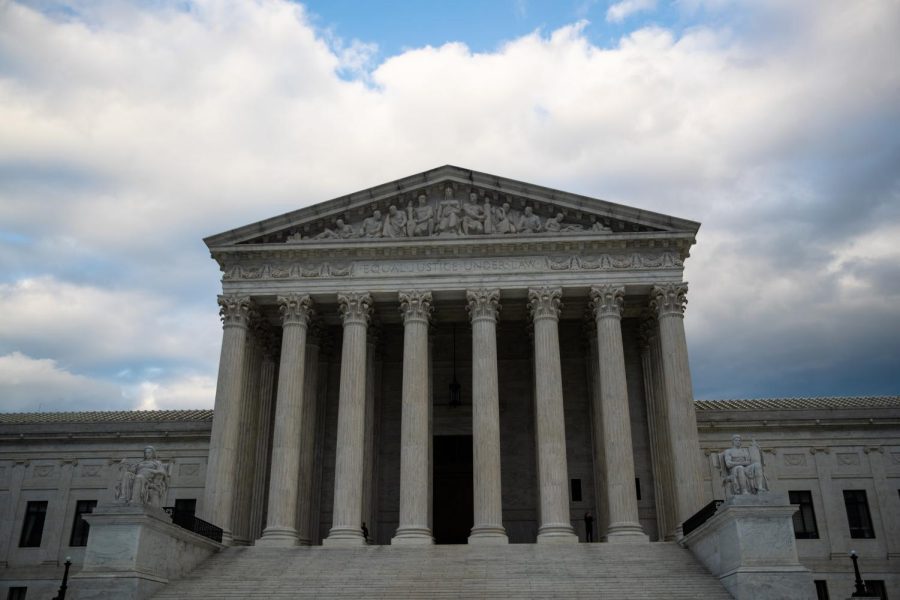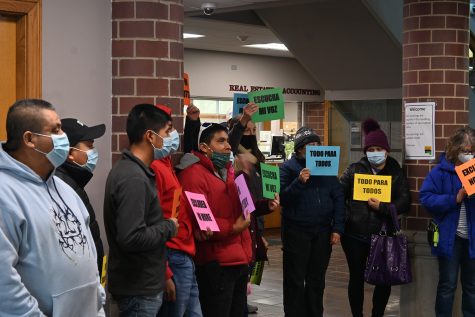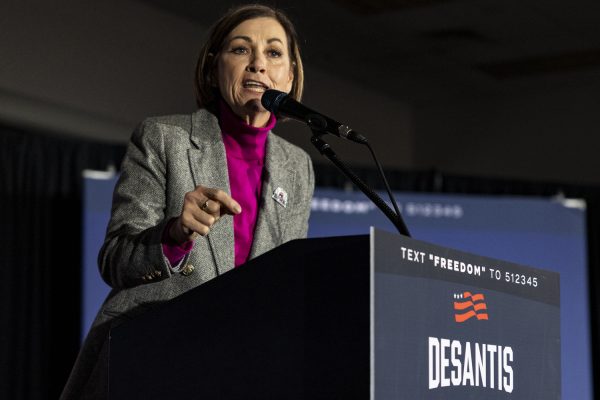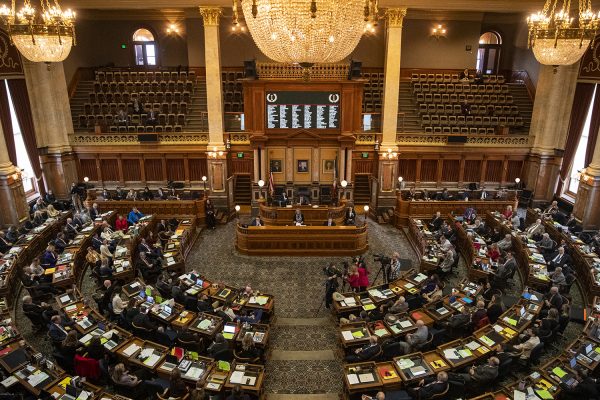Iowa City LGBTQ+ activists look forward to new Title IX rule taking effect
A newly proposed Title IX rule expands LGBTQ+ rights in public education after its release in late June.
The United States Supreme Court Building is seen on Sunday, April 3, 2022.
July 28, 2022
University of Iowa LGBTQ+ students and advocacy groups are excited for the future of LGBTQ+ rights in public education.
New Title IX protections were released on June 23, expanding rights for LGBTQ+ students and protecting them from discrimination based on gender identity and sexual orientation, by specifically naming these identities and the discrimination they are protected from in the official rules.
President of the UI LGBTQ+ advocacy group OutLaws, Hannah Altman said these new protections being brought by the Biden Administration are important to LGBTQ+ Iowans.
“We have a false idea that Iowa City is some sort of liberal bubble and that the university is on the progressive side of things and a lot of times this isn’t what always happens. But this would just protect queer students who are already underrepresented,” Altman said.
Altman said the new protections are being delayed, for what she thinks is a political move to ensure that general LGBTQ+ protections pass and aren’t struck down by the courts.
Altman said the new protections being delayed are detrimental to the LGBTQ+ community as many states have placed bans on transgender women playing women’s sports. Iowa is one of these states, having passed a bill banning Transgender females from participating in public college and K-12 girls’ sports in March.
However, Altman said this proposed rule can do a lot for the LGBTQ+ community and has helped further their rights under the law by specifically naming protections for LGBTQ+ people.
“With those protections being specifically recognized and those protections being named so that they can’t be as easily stripped is a really big deal,” Altman said.
Altman said adding protections for sexual preference and gender identity will help those people retain their rights in other administrations. Altman pointed out that during the Trump administration there were not as many protections for LGBTQ+ groups because of their interpretation of Title IX, even though LGBTQ+ people were protected under Title IX during the Obama administration.
Leonard Sandler, a UI clinical law professor that specializes in human rights cases, said the new proposed Title IX rule helps the LGBTQ+ community by naming LGBTQ+ groups specifically under the protections, thereby ensuring protections cannot be misread or overturned by.
Sandler said the clause that uses sex protections to include protections for LGBTQ+ people is based on a previous Supreme Court case regarding Title VII, which protects against employment discrimination, where the idea of protections based on sex was expanded to include sex stereotypes, sexual identity, and gender identity.
Sandler said the Trump Administration read those federal rules very narrowly about sex discrimination and the due process protections that are part of the Title IX regulations and control how investigations into complaints are conducted.
Sandler also said, even though Iowa protects against discrimination on these bases, there is a huge gap federally and this expansion will benefit LGBTQ+ people throughout the United States.
Damian Thompson, the director of Public Policy and Communications for Iowa Safe Schools, said they are excited for the Biden Administration to make more rules on transgender athletes competing in public sports and to hopefully tackle the transgender athlete bans.
Iowa Safe Schools and LGBTQ+ advocates alike are looking forward to those rules clarifying that sex as defined by the U.S. Supreme Court does include gender identity and sexual orientation, Thompson said.
The Title IX rules are currently under review for 60 days. After those 60 days, the department of education will take a look at the comments and review the language of the new rule and make any necessary changes. The Department of Education will also have to explain why they are not changing the statute in regard to comments they do not take under consideration, if applicable.
The administration is expected to tackle the issues surrounding transgender student-athletes at a later date because of issues surrounding transgender athletes in states across the U.S., including Iowa which banned transgender female athletes from competing in public universities and schools.














